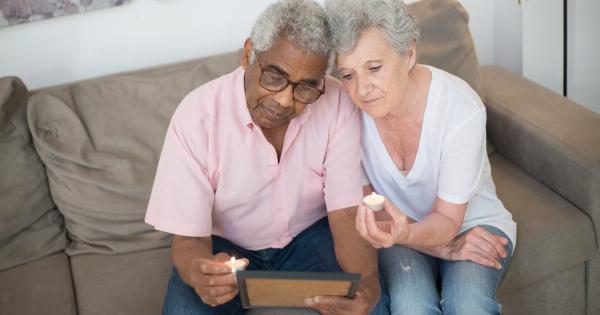Losing a loved one, whether it’s through death, breakup, or any other form of separation, can be an incredibly traumatic experience. The aftermath of such loss is filled with complex emotions and challenges that can feel overwhelming.
However, it is important to remember that healing and resilience are possible. In this article, we will explore effective coping strategies to help you navigate the trauma of loss and find a path towards healing.
Understanding the Impact of Loss
Loss can have a profound impact on both our emotional and physical well-being. Grief, depression, anxiety, and a sense of emptiness are common responses to loss. It is important to acknowledge and honor these emotions as part of the healing process.
Seeking professional help, such as grief counseling, can provide valuable support and guidance to understand and navigate the impact of loss.
Building a Support System
During times of loss, having a support system in place is crucial. Surrounding yourself with caring and understanding individuals who can provide emotional support can make a significant difference in coping with the aftermath of loss.
This can include family members, friends, support groups, or therapists. Establishing a support system allows you to lean on others during difficult times and creates a safe space for sharing your feelings.
Expressing Emotions
It is essential to allow yourself to feel and process the emotions that arise after experiencing loss. Holding in your feelings can impede the healing process and prolong the pain.
Find healthy ways to express your emotions, such as talking to a trusted friend, writing in a journal, or engaging in creative outlets like art or music. Expressing your emotions in a healthy manner can lead to a sense of relief and help you move forward.
Engaging in Self-Care
Self-care plays a vital role in coping with the trauma of loss. It is essential to prioritize your physical and emotional well-being during this challenging time.
Engaging in activities that bring you joy, practicing relaxation techniques, maintaining a healthy diet, and getting enough sleep are all crucial self-care practices. Taking care of yourself allows you to recharge and build resilience in the face of adversity.
Embracing Rituals and Memorialization
Rituals and memorialization can provide solace and a sense of closure after experiencing loss. Creating rituals to honor the memory of your loved one can be incredibly meaningful.
This could involve visiting their grave, organizing a memorial event, or even creating a personal shrine or memorial space in your own home. These acts of remembrance can help you find a sense of peace and keep the memory of your loved one alive.
Finding Meaning in Loss
While loss can be devastating, it can also provide an opportunity for personal growth and finding deeper meaning in life. Reflect on the lessons you have learned from this experience and how it has shaped you as a person.
Exploring your values, beliefs, and spirituality can be helpful in finding meaning and purpose after loss. Engaging in activities that align with your core values can contribute to a sense of fulfillment and assist in the healing process.
Seeking Professional Help
There is no shame in seeking professional help when coping with the trauma of loss. Grief counseling or therapy can provide valuable support and guidance.
A trained therapist can help you navigate through the complex emotions, develop healthy coping mechanisms, and assist in the healing process. They can also provide you with a safe and non-judgmental space to express your feelings and thoughts.
Creating New Connections
While it may feel challenging to form new connections after experiencing loss, it is essential not to isolate yourself. Building new relationships and connections can provide support and a sense of belonging.
Seek out support groups or community organizations where you can connect with others who have gone through similar experiences. Surrounding yourself with individuals who understand and empathize with your journey can be instrumental in the healing process.
Honoring Your Healing Process
Each person’s healing process after loss is unique. It is crucial to honor and respect your own timeline. Do not compare yourself to others or judge yourself for how you are coping.
Healing takes time, and it is essential to be patient and kind to yourself throughout the process. Embrace the ups and downs, and remember that small steps forward are still steps toward healing.
Finding Hope and Resilience
Although the trauma of loss may seem insurmountable at times, it is important to remember that healing and resilience are possible.
By implementing these coping strategies, seeking support, and allowing yourself to process your emotions, you can find hope and rebuild your life. The journey of healing is unique for each person, and there is no right or wrong way to heal. Embrace your own path and trust that you have the strength and resilience to overcome the trauma of loss.































